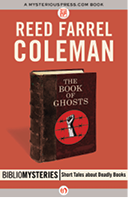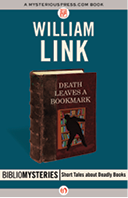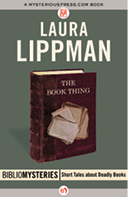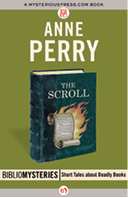Long Sonata of the Dead (4 page)
Read Long Sonata of the Dead Online
Authors: Andrew Taylor

I listened to Adam’s footsteps until they stopped. Then, for several minutes, I heard nothing else except the hum of the strip lighting and a faint crackling sound that might have been rain on a distant skylight or window.
He came out at last. I watched him approaching through the slit between the top of a row of books and the bottom of the shelf above. He had both arms full with a pile of four or five heavy books, a folder of notes and a slim silver laptop. He was wearing a pair of gold-rimmed reading glasses that gave him a scholarly air he didn’t deserve.
He passed very close to me. He began to descend the iron stairs. He was in a hurry.
At first, all I did was touch him, rest my hand on his shoulder.
When I touched him, Adam began to turn towards me. But too quickly.
That was the thing: it happened so very quickly. His own momentum still carried him forward. He was encumbered with the weight in his arms. His awareness of the fragility of the books and the laptop perhaps made it harder for him to protect himself.
Then I pushed his shoulder. Not hard, not really—barely more than a gentle nudge, the sort of gesture you might make when you meet an old friend. If you could translate the gesture into words, it would say something like, “Hey—good to see you after all this time.”
Except it wasn’t good to see him. It wasn’t good at all, not for me and not for him.
Adam overbalanced and fell with a terrible scraping crash. The laptop and other objects skipped and clattered down the stairs, making a sound that might have been a form of hard, atonal music.
The long sonata of the dead.
I ran down the stairs. Adam was lying on his front with his books and notes around him. He wasn’t moving. He made no sound at all. His head was bleeding. I wondered if the blood would drip through the iron grating and fall to the level beneath. I hoped it wouldn’t damage any books.
I listened for sounds elsewhere, for running footsteps, the sound of voices. I heard nothing but the hum and the crackling and, loudest of all, my own rapid breathing.
The laptop had skidded across the floor and come to rest against the base of a bookcase. It looked undamaged. Adam’s glasses were beside his head. They were unbroken, too. I remember thinking how easy it is to miss your footing if you forget to take off your reading glasses. Especially if you are going down a flight of stairs.
There was a phone on the floor, just inches from his hand as if he had been carrying that as well.
I picked it up. It was another iPhone. The screen was shattered. Without thinking, I pressed the control button. Nothing happened. The phone was dead. But why was there a phone in the first place?
A dead phone
, I thought:
What dead things know.
I left the library, walked through the rain across the park for the third time and caught a train to Kew.
At this hour, and on a night like this, the train wasn’t crowded. Someone had left a copy of the evening’s
Metro
on the seat next to mine and I pretended to read it as we trundled wearily westward.
There were four other passengers in the carriage. All of us avoided eye contact. One of them was a thin-faced woman sitting diagonally across the carriage from me. She was younger than I, in her early thirties perhaps, and looked like a character in a Russian novel. She ought to have been travelling by troika rather than London Underground, despite the fact that she was reading something on her Kindle.
When the train stopped at Kew, I hung back, letting the other passengers leave the station first. Three of them took the eastern exit in the direction of Mortlake Road. I left a decent interval and then followed.
It was raining harder than ever. One of the people ahead had turned off. The second one went into a house on the right. That left the thin-face woman, striding down the rain-slicked pavement in her long black coat and long black boots, sheltered by an umbrella. She turned into Rowan Avenue.
I didn’t want to give her the impression I was stalking her so I waited before following. I took shelter under a tree but there wasn’t much point. I was already soaking wet.
A moment later, I turned the corner. Number 23 was on the other side of the road. The lights were on in the hall and behind the blinds of a ground-floor room at the front with a bay window. I had no idea what I would say to Mary. Or even if I would have the courage to ring the bell. But it didn’t matter. It would be good to know she was there, in that house. It would be good to know she was alive.
The woman ahead crossed the road. I hesitated. She was approaching the gate of Mary’s house. She opened it.
I darted after her and took cover beside a black SUV so absurdly large it would have concealed an elephant. I edged sideways. I could now see her standing in the little porch by the front door. She had closed her umbrella and left it on the tiled floor.
A light was on above her head and she might have been standing on a miniature stage. She glanced over her shoulder. I saw her face, all bones and shadows and glaring white skin.
The door opened. There was Mary. She had changed into a dark blue dress since this afternoon.
“Janine,” she said. “Janine.”
The women embraced. But it wasn’t as friends embrace.
“I’m so sorry,” Mary said. “He took my phone, would you believe?”
“So does he know?” Janine said.
“He must have seen the texts. Anyway, come here.”
Mary drew the younger woman inside.
She was smiling as if she would never stop. The door closed.
I closed my eyes. The rain fell. The raindrops tapped on the dark, shiny roof of the SUV. A car hooted on the Mortlake Road. Traffic grumbled. Tires hissed over wet tarmac. A door opened down the street and, for a moment before it closed again, I heard a piano playing the saddest tune in the world.
My eyes were closed. I listened to the long sonata of the dead.
All rights reserved, including without limitation the right to reproduce this ebook or any portion thereof in any form or by any means, whether electronic or mechanical, now known or hereinafter invented, without the express written permission of the publisher.
This is a work of fiction. Names, characters, places, events, and incidents either are the product of the author’s imagination or are used fictitiously. Any resemblance to actual persons, living or dead, businesses, companies, events, or locales is entirely coincidental.
Copyright © 2013 by Andrew Taylor
Cover design by Mauricio Diaz
This edition distributed by MysteriousPress.com/Open Road Integrated Media, Inc.
345 Hudson Street
New York, NY 10014












